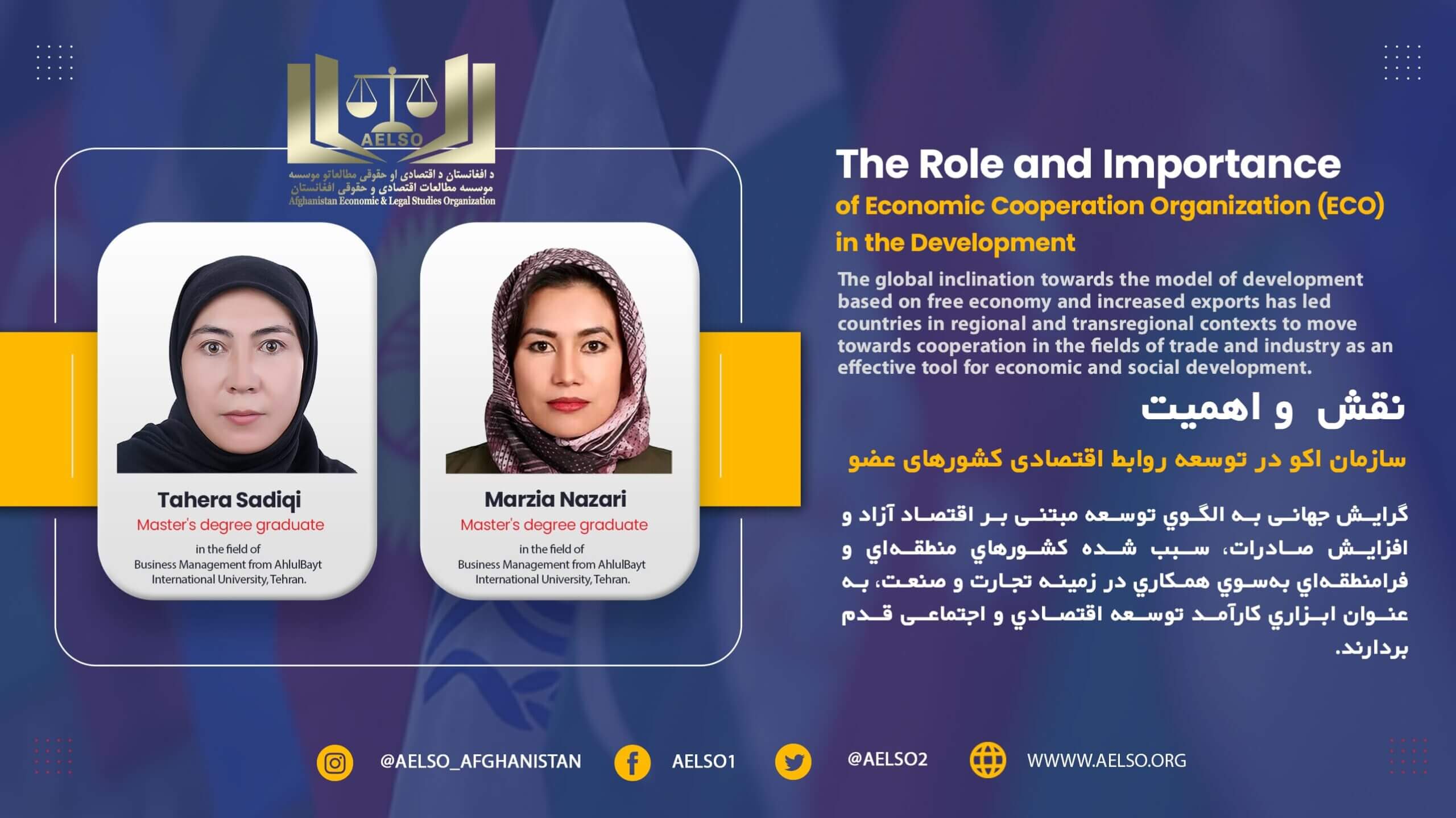
The Role and Importance of Economic Cooperation Organization (ECO) in the Development of Economic Relations between member countries
Abstract:
The global trend towards a development model based on a free economy and increased exports has prompted countries in regional and transregional contexts to engage in cooperation in trade and industry as an effective tool for economic and social development. In this regard, the Economic Cooperation Organization (ECO) has focused on the economic development of its member countries. Following the accession of countries such as Azerbaijan, Uzbekistan, Tajikistan, Turkmenistan, Kyrgyzstan, and our dear Afghanistan, ECO has garnered increased attention from its three founding countries (Iran, Turkey, and Pakistan). Currently, Iran, Pakistan, Turkey, Afghanistan, Tajikistan, Turkmenistan, Uzbekistan, Kazakhstan, Kyrgyzstan, and the Republic of Azerbaijan are members of ECO. The most significant role of ECO for its member countries is the development of economic relations. Despite the economic and political obstacles faced by member states, by facilitating the necessary conditions for the trade of goods and services among member countries, ECO can create the required conditions for economic growth, taking advantage of relative benefits and technology transfer among its member countries. This research primarily focuses on the role and significance of ECO in developing economic relations among its member countries, which have had trade relationships for years. The research methodology is library-based, drawing scientifically from existing materials in books, articles, journals, past research, and reputable scientific and relevant websites. The statistical population of this research includes all domestic and foreign studies conducted in this area.
Keywords: Economic development, ECO organization, trade, role, member countries